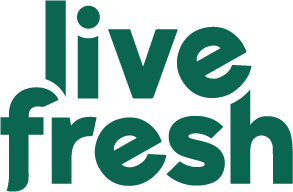Kennst Du das? Nach einem stressigen Tag greifst Du automatisch zur Tafel Schokolade oder die Chips-Tüte ruft Deinen Namen, wenn Du Dich gelangweilt oder traurig fühlst? Das istemotionales Essen oder auch Frustessengenannt. Aber keine Sorge – Du bist nicht allein! Viele Menschen essen aus emotionalen Gründen und nicht, weil sie tatsächlich hungrig sind. In diesem Artikel wollen wir Dir erklären, was emotionales Essen ist, warum wir manchmal zu bestimmten Lebensmitteln greifen, wie Du besser damit umgehen und es sogar stoppen kannst.
Highlights
- Emotionales Essen bedeutet, aus emotionalen Gründen wie Stress, Langeweile oder Traurigkeit zu essen, anstatt aus echtem Hunger.
- Typische Auslöser sind negative Gefühle, die durch Essen kurzfristig "gelindert" werden.
- Regelmäßiges emotionales Essen kann zu Gewichtszunahme, Schuldgefühlen und psychischen Belastungen führen.
- Strategien zur Bewältigung umfassen Achtsamkeit, Stressabbau, gesunde Alternativen und das Erkennen von emotionalem Hunger.
- Unterstützung durch Experten kann bei starkem emotionalem Essen hilfreich sein.
What is emotional eating?
When we talk about emotional eating or emotional eating, we mean eating out of an emotional state.emotionalreason - for example, because we are stressed, sad, angry or bored. It has nothing to do with realhungerto do with real hunger. Emotional eating often feels like it comes out of nowhere - suddenly you feel the urgent need to eat something specific, like chocolate or pizza. In contrast, real hunger comes rather slowly and can be satisfied by any kind of food.
Why do we reach for food when we feel emotional?
There are many psychological reasons why we overeat. Here are a few of the most common feelings that go along with it:
- Stress: When we are stressed, our body releases the hormone cortisol which makes us crave fatty, sweet or salty foods. Our brain is looking for a quick way to get better - and food provides this short-term "kick".
- BoredomWhen we're bored, we often eat simply to pass the time. It gives us a sense of occupation and distraction.
- Sadness or lonelinessSome of us crave food to deal with negative emotions. Although this works in the short term, it often makes us even more unhappy in the long run.
- Reward and comfort: Food is often seen as a reward or consolation plaster for example after an exhausting day or when something has not gone as we had imagined.
The effects of emotional eating
You may be asking yourself: "What's so bad about eating occasionally when I feel bad?" In itself, it's not dramatic if it happens occasionally. However, it can Regular emotional eating can have negative consequences:
- Weight gainWhen we often eat without really being hungry, our food intake is significantly higher and we usually consume more calories than our body needs. This can lead to unwanted weight gain can lead to unwanted weight gain.
- Feelings of guilt: We often feel bad after emotional eating or have the feeling that we have lost control. This can lead to feelings of guilt and a negative self-image.
- Psychological stressEmotional eating can become a vicious cycle where we feel bad, eat to feel better and then feel even worse afterwards. In the long run, this can affect our mental health health.
How do you know if you are eating emotionally?
The first step to getting to grips with emotional eating is to recognize when you are eating out of emotions and not out of hunger eats. Here are a few tips on how you can tell the difference:
- Pay attention to hungerDoes the craving come on slowly or suddenly? If it comes on suddenly and you have a strong craving for a certain food, it's probably emotional eating.
- Ask yourself what you feelBefore you eat, stop for a moment and ask yourself: "Am I really hungry or is there something else?" Maybe you feel stressed, bored or sad.
- Keep a food diaryWrite down when and what you eat and what feelings you associate with it. This will make it easier for you to recognize patterns.
- Reduce stress and relaxThere are always stressful times. Make sure that these don't get out of hand and that you always find islands of calm for relaxation during these times. Well suited for this are Autogenic training and yoga. In addition, during this time you should focus on powerful nerve food during this time.
Strategies to overcome frustration eating and eating out of stress
Don't worry - emotional eating is not an inevitable fate! There are some strategiesthat can help you deal better with your emotions and food cravings. However, it takes some time and patience.
- High protein diet: Start by laying the foundation and preventing cravings by giving your body sufficient protein protein. And it's not that complicated: start with the Skyr High-Protein Drink to start the day. You can choose between 3 delicious varieties. Alternatively, the Lower Carb Protein Porridge in 3 varieties for even more variety in the morning. And you can also easily keep the rest of the day going with the protein-rich, healthy Fitness Bowls. or the vegan drinkable mealquickly and easily.
- Mindfulness practiseTry to eat more consciously. Take time for your meals, eat slowly and pay attention to the taste and texture of the food. This will help you to recognize more quickly whether you really need food or are just eating out of habit.
- Manage emotions differentlyInstead of reaching for food when you are stressed or sad, find other ways to deal with these emotions. This can be, for example exercise, meditation or a conversation with a friend.
- Provide healthy alternativesIf you notice that you often eat for emotional reasons, make sure that you healthy snacks snacks to hand, such as fruit, nuts, vegetables or a high protein snack. This way you can satisfy your cravings without consuming unhealthy foods.
- Change routinesSometimes it helps to introduce fixed meal times or find alternative activities when you feel bored or stressed. For example, you could go for a walk or read a book instead of eating.
- Seek support: If emotional eating becomes a big problem for you, get professional help and support, for example from a nutritionist or therapists.
Frequently asked questions about emotional eating
How can I tell whether I am eating out of hunger or emotion?
Try to listen to your body signals pay attention. True hunger signals develop slowly, while emotional cravings come on suddenly. If you only crave certain foods such as sweets or fast food, it is probably emotional eating.
What can I do if I have a craving for emotional eating?
Instead of going straight to the fridge, try to stop for a moment and think about what you really need. Sometimes it's enough to take a short break, breathe deeply or go for a walk to overcome the urge.
Can emotional eating really be harmful?
Yes, if it happens regularly, emotional eating can lead to health problems such as weight gain, digestive problems or psychological stress. It is important to find a healthy way of dealing with food and emotions.
How can I find healthier alternatives when I eat emotionally?
Instead of helping yourself to unhealthy snacks, try healthy alternatives such as fruit, vegetable sticks or a handful of nuts. Activities such as exercise or relaxation techniques can also be a good alternative.
Conclusion
Emotional eating is something that affects many of us, but it is possible to deal with it better. By being aware of ouremotionsand learning to find healthier alternatives, we can break the vicious circle. Sufficient protein in every meal is the key to success here. Be patient with yourself - the path to healthier eating behavior is a process.
Das könnte dich auch interessieren

Dr. Ulrike Fischer
Nutritionist
Developed on a scientific basis by Dr. Ulrike Fischer, who holds a doctorate in nutritional science.
Kennst Du das? Nach einem stressigen Tag greifst Du automatisch zur Tafel Schokolade oder die Chips-Tüte ruft Deinen Namen, wenn Du Dich gelangweilt oder traurig fühlst? Das istemotionales Essen oder auch Frustessengenannt. Aber keine Sorge – Du bist nicht allein! Viele Menschen essen aus emotionalen Gründen und nicht, weil sie tatsächlich hungrig sind. In diesem Artikel wollen wir Dir erklären, was emotionales Essen ist, warum wir manchmal zu bestimmten Lebensmitteln greifen, wie Du besser damit umgehen und es sogar stoppen kannst.
Highlights
- Emotionales Essen bedeutet, aus emotionalen Gründen wie Stress, Langeweile oder Traurigkeit zu essen, anstatt aus echtem Hunger.
- Typische Auslöser sind negative Gefühle, die durch Essen kurzfristig "gelindert" werden.
- Regelmäßiges emotionales Essen kann zu Gewichtszunahme, Schuldgefühlen und psychischen Belastungen führen.
- Strategien zur Bewältigung umfassen Achtsamkeit, Stressabbau, gesunde Alternativen und das Erkennen von emotionalem Hunger.
- Unterstützung durch Experten kann bei starkem emotionalem Essen hilfreich sein.
Inhalt








